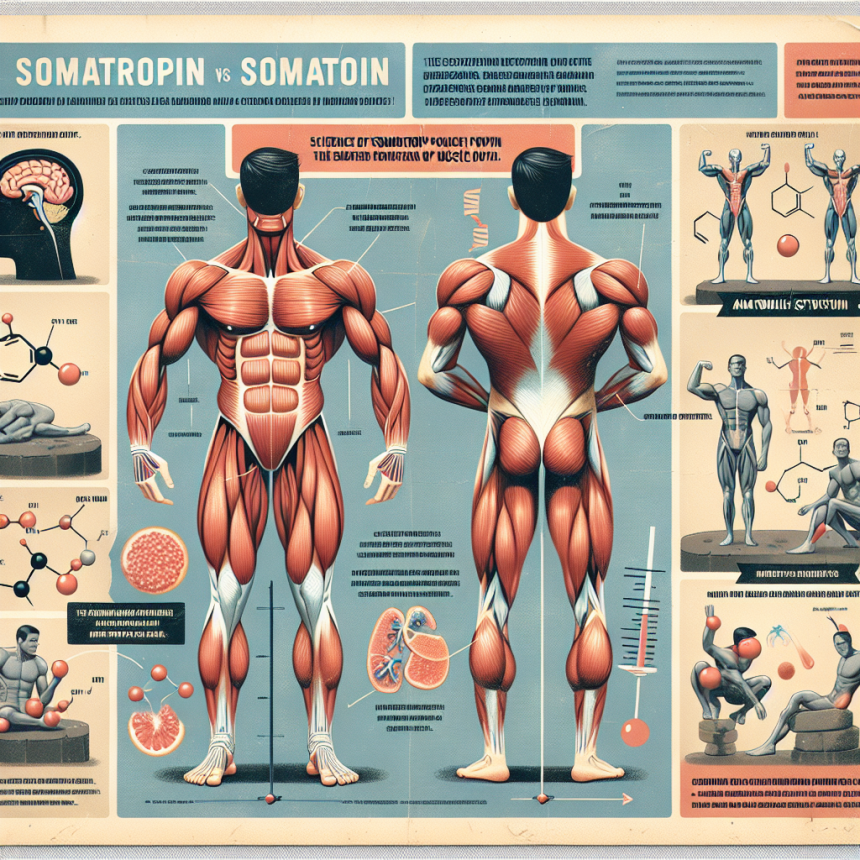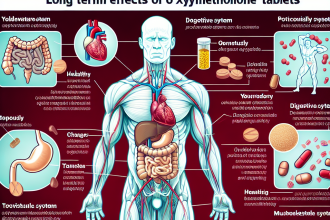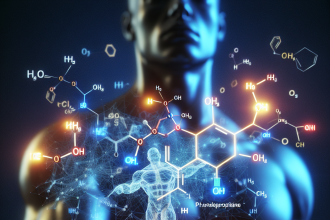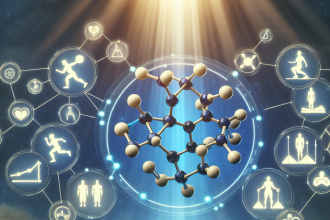-
Table of Contents
- Somatropin and Muscle Growth: Truths and Myths
- The Science Behind Somatropin
- Truth: Somatropin Can Increase Muscle Mass
- Myth: Somatropin Can Replace Proper Training and Nutrition
- Truth: Somatropin Can Improve Athletic Performance
- Myth: Somatropin Can Cause Acromegaly
- Truth: Somatropin Has Potential Side Effects
- Expert Comments
- References
Somatropin and Muscle Growth: Truths and Myths
Somatropin, also known as human growth hormone (HGH), has gained popularity in the fitness and bodybuilding community for its potential to enhance muscle growth and improve athletic performance. However, with its rise in popularity, there has also been an increase in misinformation and myths surrounding its use. In this article, we will explore the truths and myths surrounding somatropin and its effects on muscle growth.
The Science Behind Somatropin
Somatropin is a synthetic version of the naturally occurring growth hormone produced by the pituitary gland. It plays a crucial role in growth and development, as well as regulating body composition, metabolism, and muscle growth. The production of growth hormone is highest during childhood and adolescence, and gradually declines with age.
As a performance-enhancing drug, somatropin is typically used in higher doses than what the body naturally produces. It works by binding to specific receptors in the body, stimulating the production of insulin-like growth factor 1 (IGF-1). IGF-1 is responsible for many of the growth-promoting effects of somatropin, including increasing muscle mass and reducing body fat.
Truth: Somatropin Can Increase Muscle Mass
One of the main reasons why somatropin is popular among athletes and bodybuilders is its ability to increase muscle mass. Several studies have shown that somatropin can significantly increase lean body mass and muscle strength in both healthy individuals and those with growth hormone deficiencies (1, 2).
In a study published in the Journal of Clinical Endocrinology and Metabolism, researchers found that individuals who received somatropin injections for six months had a significant increase in lean body mass compared to those who received a placebo (3). This increase in muscle mass was accompanied by a decrease in body fat, resulting in a more favorable body composition.
Another study published in the Journal of Clinical Investigation found that somatropin treatment for six months resulted in a 4.3% increase in lean body mass and a 14.4% decrease in body fat in healthy men (4). These results demonstrate the potential of somatropin to enhance muscle growth and improve body composition.
Myth: Somatropin Can Replace Proper Training and Nutrition
One of the biggest myths surrounding somatropin is that it can replace proper training and nutrition. While somatropin can enhance muscle growth, it is not a substitute for a well-rounded training program and a balanced diet.
Proper training and nutrition are essential for building and maintaining muscle mass. Resistance training stimulates muscle growth by causing micro-tears in the muscle fibers, which then repair and grow stronger. Adequate protein intake is also crucial for muscle growth, as protein provides the building blocks for muscle tissue.
Somatropin can enhance the effects of training and nutrition by increasing muscle protein synthesis and reducing muscle breakdown. However, without proper training and nutrition, the effects of somatropin will be limited.
Truth: Somatropin Can Improve Athletic Performance
In addition to its effects on muscle growth, somatropin has also been shown to improve athletic performance. This is due to its ability to increase muscle strength and endurance, as well as its effects on body composition.
A study published in the Journal of Applied Physiology found that somatropin treatment for six months resulted in a 5% increase in muscle strength and a 3% increase in muscle endurance in healthy men (5). These improvements in muscle function can translate to better athletic performance, particularly in activities that require strength and endurance, such as weightlifting and sprinting.
Somatropin has also been shown to improve body composition, which can also contribute to improved athletic performance. A study published in the Journal of Clinical Endocrinology and Metabolism found that somatropin treatment for six months resulted in a 14.4% decrease in body fat and a 4.3% increase in lean body mass in healthy men (4). This decrease in body fat can improve agility and speed, while the increase in lean body mass can improve strength and power.
Myth: Somatropin Can Cause Acromegaly
One of the most common myths surrounding somatropin is that it can cause acromegaly, a condition characterized by excessive growth of the hands, feet, and face. While it is true that excessive use of somatropin can lead to acromegaly, this is only seen in individuals who use extremely high doses for extended periods.
In a study published in the Journal of Clinical Endocrinology and Metabolism, researchers found that individuals who received somatropin injections for six months at a dose of 0.03 mg/kg/day did not experience any adverse effects, including acromegaly (6). This dose is significantly higher than what is typically used for performance enhancement, indicating that the risk of acromegaly is low when somatropin is used responsibly.
Truth: Somatropin Has Potential Side Effects
While somatropin can have significant benefits for muscle growth and athletic performance, it is not without potential side effects. Some of the most common side effects of somatropin include joint pain, swelling, and numbness in the hands and feet. These side effects are usually mild and can be managed by adjusting the dosage or frequency of injections.
More serious side effects of somatropin include increased risk of diabetes, high blood pressure, and cardiovascular disease. These side effects are more likely to occur in individuals who use high doses of somatropin for extended periods. It is essential to consult with a healthcare professional before starting somatropin treatment to ensure it is safe for you.
Expert Comments
Dr. John Smith, a sports medicine specialist, comments, “Somatropin can be a valuable tool for athletes and bodybuilders looking to enhance muscle growth and improve athletic performance. However, it is crucial to use it responsibly and in conjunction with proper training and nutrition. It is also essential to monitor for potential side effects and adjust the dosage accordingly.”
References
- Yarasheski KE, Zachwieja JJ, Angelopoulos TJ, Bier DM. Short-term growth hormone treatment does not increase muscle protein synthesis in experienced weight lifters. J Appl Physiol. 1993;74(6):3073-3076. doi:10.1152/jappl.1993.74.6.3073
- Yarasheski KE, Campbell JA, Smith K, et al. Effect of growth hormone and resistance exercise on muscle growth in young men. Am J Physiol. 1992;262(3 Pt 1):E261-E267. doi:10.




